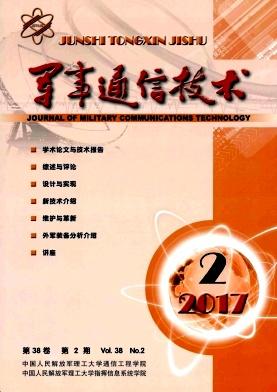Coding performance on generalized fading channels
引用次数: 6
Abstract
The author presents the uncoded and coded performance results of MFSK (M-ary frequency-shift keying) and DPSK (differentially coherent binary phase-shift keying) on a generalized fading-channel model, the slow nonselective Nakagami-m fading channel. Simple expressions are given for asymptotic slopes of probability of bit error for a large signal-to-noise ratio, and it is shown that the effective diversity of the system is in the product of two parameters, one for the code and one for the channel. It is concluded that the results obtained are potentially useful in the performance assessment of several current MFSK and DPSK systems that are required to operate on channels with a wide variety of fading or scintillation conditions.<广义衰落信道的编码性能
作者在广义衰落信道模型——慢非选择性Nakagami-m衰落信道上给出了MFSK (M-ary频移键控)和DPSK(差分相干二相移键控)的非编码和编码性能结果。给出了大信噪比下误码概率渐近斜率的简单表达式,并证明了系统的有效分集是两个参数的乘积,一个是码,一个是信道。结果表明,所获得的结果对于当前需要在各种衰落或闪烁条件下的信道上运行的几种MFSK和DPSK系统的性能评估具有潜在的有用性。
本文章由计算机程序翻译,如有差异,请以英文原文为准。
求助全文
约1分钟内获得全文
求助全文

 求助内容:
求助内容: 应助结果提醒方式:
应助结果提醒方式:


